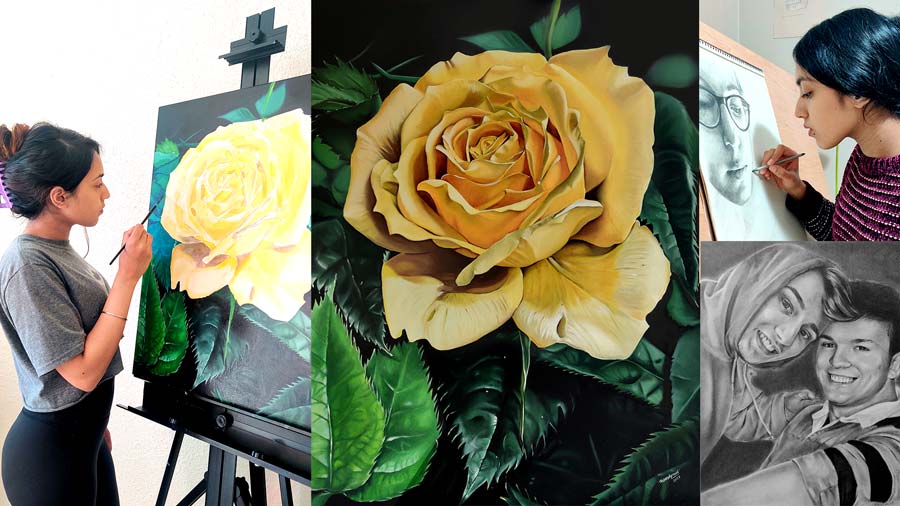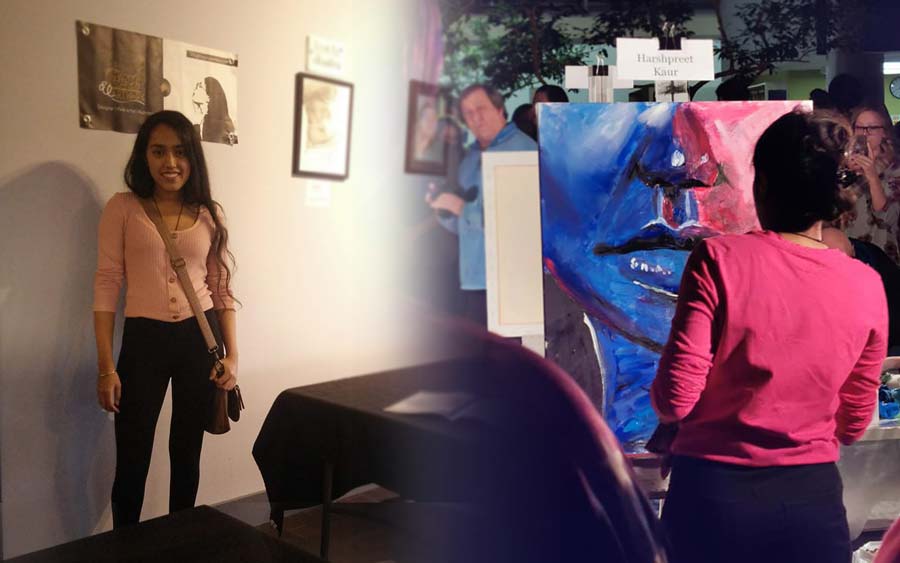Why You Need Artist Mentorship
Artist Mentorship Is More Important Than Art School Education. Here's Why...
THE MISSING PIECE
Art is best practiced and improved in a studio, not at a school. Yes, that’s right! Stop looking for the perfect art program at the perfect university to learn how to make YOUR OWN art. Most programs, if not all, follow the same kind of curriculum/syllabus. Art programs at schools are designed to help you explore all possibilities in art. While there is some value in these programs, they do lack one major area of study which is - getting proficient in the specific medium or type of art you actually want to create and market.
The programs at schools do not allow you to focus on one specific style, medium etc. They aim to show you all domains within the art world which can be helpful but often ends up leaving so many young aspiring artists confused after they graduate. There are too many directions to follow; so no wonder they do not know where to actually begin their career. In some cases, their portfolio from college/university may even look like a jigsaw puzzle with many uniquely different pieces that do not necessarily fit together which makes it even more difficult to proceed.

WHY ARTIST MENTORSHIPS?
A professional artist curates pieces that fit together and complement each other. Generally, professional artists will work with a particular theme or style or subject matter that really ties their portfolio together. This is why YOU NEED to seek mentorship from a professionally working artist. If you are currently in school or thinking of going, you can do this while you are studying your art program or even before your program starts to give you a clear idea of what area of your art you’d like to improve.
Now, don't just go to any artist. Look for the one that really inspires you to improve your art and learn more. Ideally, the artist you want to be trained from is the one who practices the same medium or style or theme that you are highly interested in. There are a few reasons for this.
-
First one is a bit obvious but I’ll mention it anyway - working with the ideal artist will give you highly valuable knowledge specifically of the type of art you are interested in. It filters out all of the extra stuff that may not be necessary for your learning.
-
Secondly, if the artist is super nice (which they are), they may get you access to their network of other artists, galleries, and even art collectors. Schools can also put you in touch with a network but art buyers and renowned artists are their limitation as schools expect to find your own buyer base and artist community yourself.
-
Thirdly, you get to know what the art market looks like, in real-time, for the art you are trying to make. When you work with an artist in their studio, you get real life data on what is selling and what is not. This one is up to you - be aware and ask questions to your mentor when you are curious about something. This is a good way to test your product’s viability - is your art in demand? What demographic is buying your art? etc.
-
Lastly, artists' mentorships cost you much less than going to college while still allowing you the flexibility to choose how long you want to be mentored and giving you much more personalized education. Not to mention, you get plenty of time to make art minus the pressure of getting graded or preparing for exams.
Those are some pretty solid points! There’s probably more reasons too but lets move on to finding that artist who can mentor you.

FINDING THE MENTOR
Most professional artists are very welcoming and approachable when it comes to mentoring; however, they don't necessarily advertise that they provide mentorship. Here is where your research comes in. Find out if the artist you want to work with is available for mentorship. You can reach out to them via their website or social media and directly message them about your interest in working with them.
Every artist I’ve met and worked with has been warm and friendly as long as I am genuinely interested in learning. But do remember that nothing is free! Offer to pay them for their time and express your true interest in the art they are making; you are guaranteed a positive response. In some cases, the artist may direct you to their online class or a workshop but your focus should be on getting an in-person mentorship. That’s where the golden opportunity comes from. An online workshop does not compare to the benefits of an in-person mentorship. Only a true mentor can guide you to reach your full potential.
QUANTITY BRINGS QUALITY
Don’t worry if you are unable to go to art school or if you are confused during/after your art program completion. Your dreams can come true without art school. An artists’ mentorship will get you going faster than you thought possible. In the meantime, keep making more art because improvement truly happens with consistent effort and the desire to get better at your skills.
